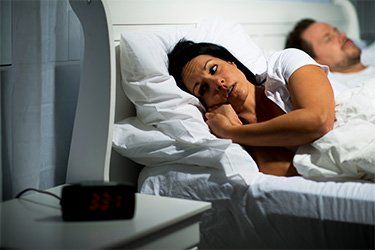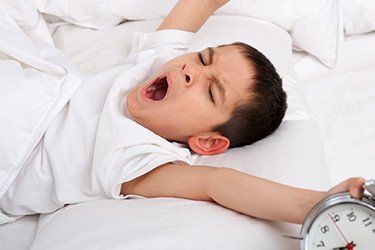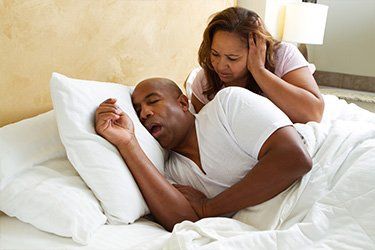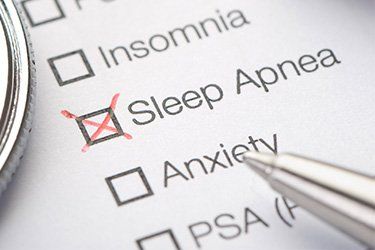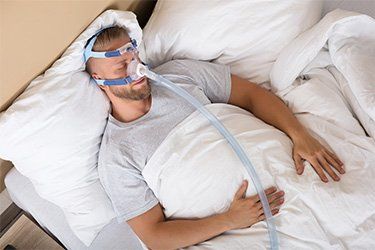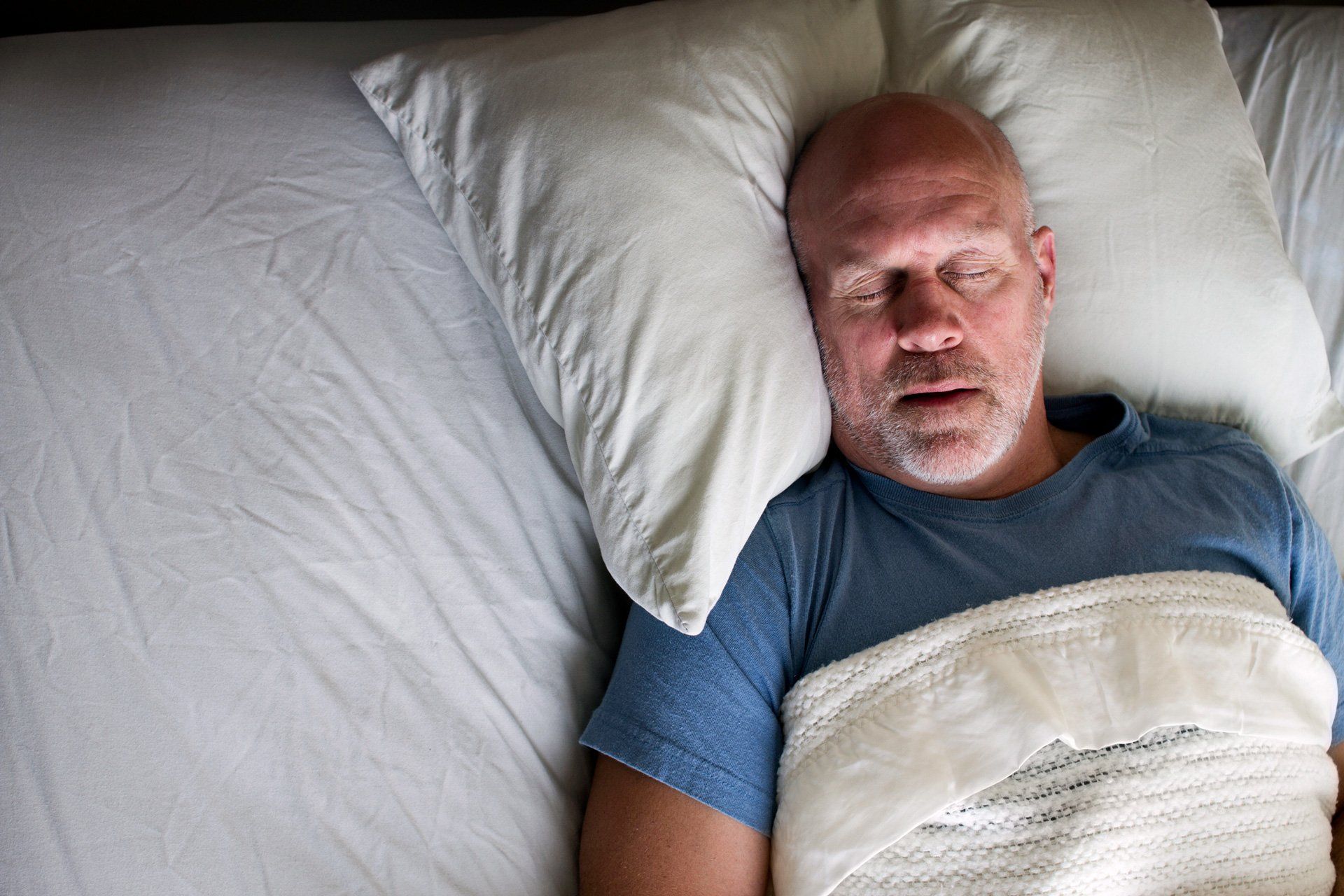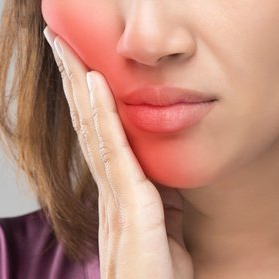Additional Health Issues Related to Sleep Apnea and Sleep-Disordered Breathing
Nighttime breathing problems can affect any gender, any age and any ethnicity. However, the average person typically doesn’t know there’s a long list of dangerous health conditions associated with these repeated drops in oxygen levels while sleeping.
In fact, many people who suffer from these respiratory problems during sleep are unaware of them. That means they’re at increased risk for serious illness without even knowing they should seek a solution.
Potential Health Complications of Untreated Sleep Apnea
Sleep-disordered breathing increases the risk of the following serious—and sometimes fatal—health issues:
High Blood Pressure
High blood pressure forces your heart to work harder to pump blood throughout your body. Not only does this weaken your heart muscles over time, but it can damage your arteries and increase your risk of stroke, heart attack, and heart disease.
With both obstructive sleep apnea and central sleep apnea, your body stops breathing temporarily throughout the night (which is what
apnea means). This lowers your blood oxygen levels and activates your body’s “fight or flight” response, which increases your heart rate and blood pressure. It can also cause overproduction of stress hormones like adrenaline, which also increase blood pressure. Without treatment, your heart will have to work overtime every night to manage these apnea events.
Heart Disease
Heart disease is the leading cause of death for adults in the United States, regardless of gender or race. High blood pressure is a major risk factor for heart disease, and sleep disorders like apnea can and do cause high blood pressure. This is because sleep apnea causes your body to stop breathing multiple times each night.
Your brain then tries to fix this by signaling that your body is in danger, so it produces stress hormones as part of your body’s “fight or flight” response. When this happens every night for days, weeks, or months, it severely affects your heart muscles and can even lead to heart failure. This is why treatment for sleep apnea is vital for good heart health.
Stroke & Heart Attack
Stroke and heart attack are also very serious health conditions that can lead to hospitalization, disability, and even death. When your body stops breathing repeatedly at night due to sleep apnea, it causes your heart to work harder. This can lead to
arrhythmias (or an abnormal heart rhythm).
Your heart needs to pump blood steadily to keep it moving throughout your body. When your heartbeat rhythm is off, it can cause blood to linger for too long in the same place—which can lead to clotting. If you have a blood clot, it can block your arteries and lead to a heart attack. It can even leave your heart and travel through your bloodstream to your brain and cause a stroke. This is yet another reason why you should seek treatment right away if you’re experiencing any
common sleep apnea symptoms.
Type 2 Diabetes
Diabetes is a chronic medical condition that happens when your body struggles to regulate your blood sugar levels. It’s an unfortunately common condition that affects about 38.4 million adults in the United States, and you could have diabetes and not know it. While sleep apnea doesn’t
cause
diabetes, it can greatly increase your risk of developing diabetes complications if left untreated. This is because your body needs high-quality sleep to regulate its functions and take care of its health.
Diabetes already impacts the body by increasing the risk of heart disease, stroke, and more. Adding untreated sleep apnea on top of diabetes can severely stress out your body and negatively affect your health and quality of life. If you think you have sleep apnea, you should schedule a consultation with Dr. Maryam Seifi right away—especially if you also have diabetes or are prediabetic.
Depression
Depression is a serious condition that can reduce your quality of life if left untreated. Many of the symptoms of depression, such as chronic fatigue and unexplained mood swings, are
also
symptoms that people with sleep apnea experience. In fact, the symptoms overlap enough that it’s entirely possible for depression itself to be a symptom of sleep apnea, or for sleep apnea to exacerbate depression.
Over time, poor quality sleep can impact your overall health, your mood, and your cognitive function. If you are suffering from depression and also experience symptoms of sleep apnea, it would be wise to seek a consultation with Dr. Maryam Seifi to see if sleep apnea could be causing or worsening your symptoms.
Attention Deficit Disorder
Attention-Deficit/Hyperactivity Disorder (ADHD) is a condition that makes it difficult to manage behavior, pay attention, and much more. It is
estimated to affect about 10% of children between ages 3 and 17 in the United States. However, it should be noted that many of the
symptoms of ADHD in children overlap with the symptoms of obstructive sleep apnea. This is because the constant sleep interruptions that happen with sleep apnea can lead to a whole host of medical and emotional problems simply due to not getting enough sleep.
If your child has ADHD or a similar condition, you should consider having them tested for obstructive sleep apnea. If you aren’t sure whether or not your child is showing symptoms, you can always check our
free online assessment.
Headaches
Headaches and migraines are common health conditions that impact nearly 130
million adults in the United States. And about 30 million people experience migraine headaches, which can last for several days at a time. Sleep apnea leads to high blood pressure, poor sleep quality, and increased production of stress hormones—all of which can contribute to the development of a headache or migraine.
And if you don’t know that you have sleep apnea, you could experience frequent headaches and simply think it’s normal without realizing it’s a symptom of a bigger problem. This is another good reason why you should seek a sleep apnea consultation if you’re experiencing any
common symptoms.
Weight Gain
Weight gain can be the cause of obstructive sleep apnea, but did you know it could also be a symptom? When your body doesn’t get enough sleep, it can’t produce the amount of energy you need to handle day-to-day life. This can cause you to seek out more calories in coffee or energy drinks, and it can even make you feel hungrier and overeat. Additionally, lack of high-quality sleep makes you tired and can make you feel like exercising or being active is an impossible task. This causes you to be more sedentary, so you don’t end up burning any of the extra calories you’re consuming to manage your exhaustion.
When this happens over and over again, it can lead to weight gain—and the weight gain itself can lead to severe obstructive sleep apnea. If you’ve noticed that you’re suddenly feeling more tired than usual and you’re gaining weight, we recommend getting tested for sleep apnea to see if that could be the cause.
Memory Problems
Memory problems and other issues with cognitive function are common symptoms of lack of sleep. If you’ve ever pulled an all-nighter and felt like a zombie the next day, you know exactly what we mean. Usually, one bad night of sleep is difficult but you can make up for it by getting more sleep the next night. But chronic lack of sleep, like you experience with sleep apnea, means that your body never gets to make up for it. You just end up being exhausted every day because your body can’t restore itself and produce the energy you need for healthy living.
This can lead to poor memory or forgetfulness, difficulty focusing, and even dementia. If you’re noticing that you’re chronically fatigued or having trouble with memory, you should schedule a consultation with Dr. Maryam Seifi to see if sleep apnea could be a contributing factor.
How to Tell if You Have a Sleep Disorder
If you’re worried about sleep apnea or other sleep related breathing disorders and you aren’t sure what to do, Breath of Life Dental offers a free online quiz that you can take to get answers. All you have to do is review the symptoms and see how many you have. If you have more than three, you may be experiencing sleep apnea. Thankfully, our team can help! Just fill out the contact information after the quiz and a member of our team will reach out to you to schedule a consultation with Dr. Maryam Seifi as soon as possible so that you can get the restful sleep you need for your overall health and wellbeing.
Learn More About the Vivos Appliance
Breath of Life Dental and Dr. Maryam Seifi offer educational seminars on a breakthrough treatment for sleep apnea and other types of sleep-disordered breathing which avoids the need for surgery or bulky facial appliances. Our most popular treatment is the revolutionary
Vivos oral appliance which handles the cause of obstructive sleep apnea in a safe, non-invasive way.
Learn how you can comfortably reduce your risk of serious illness. Call to schedule a personal consultation with Dr. Seifi or attendance at an upcoming seminar at (301) 770-1070. You can also register for a seminar or schedule a consultation online at this website.

